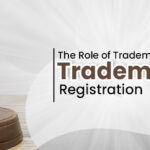Trademark Searches, trademarks emerge as formidable shields for businesses, offering protection and distinctiveness to their brands. However, even the most robust shields are not invincible, and there are instances where registered trademarks face the possibility of revocation. This article aims to delve into the intricate world of trademark revocation, unravelling the grounds, legal mechanisms, and procedural aspects associated with the cancellation of registered trademarks. As businesses navigate the complexities of intellectual property, a profound understanding of Trademark Searches and trademark revocation becomes imperative for safeguarding brand identity and market presence.
Key Aspects of Trademark Revocation:
Trademark revocation requires a meticulous examination of grounds that render a registered trademark susceptible to cancellation. From non-use and genericity to deceptive similarity, this comprehensive analysis explores the diverse reasons triggering the revocation process. The article also delves into the procedural aspects, illustrating the legal steps and considerations that both trademark holders and challengers must navigate during a revocation attempt. Understanding the realm of trademark revocation equips businesses and legal practitioners with the knowledge necessary to navigate the nuanced landscape of intellectual property law.
It refers to the legal process through which the validity of a registered trademark is challenged, leading to its potential cancellation. Despite being a protective mechanism, trademarks are subject to scrutiny, and their legitimacy may be questioned under specific circumstances. One of the primary grounds for trademark revocation is non-use, wherein a registered trademark may face cancellation if it is not actively utilized in commerce for a continuous period. This underscores the importance of businesses actively engaging with their registered trademarks through regular Trademark Searches to maintain their legal standing.
Another critical aspect contributing to trademark revocation is the likelihood of confusion. If a registered trademark is deemed similar to an existing one, especially in the same industry or related field, it may face challenges from the concerned parties. Courts often assess the potential for confusion among consumers, emphasizing the need for trademarks to be distinctive and avoid any potential overlap with existing marks, highlighting the significance of thorough Trademark Searches.
Read also this -: The Role of Trademark Class Finder in Trademark Registration
The legal mechanisms for trademark revocation are outlined in the Trade Marks Act, providing a structured framework for challenging the validity of a registered mark. The aggrieved party can file a petition before the Intellectual Property Appellate Board (IPAB) or initiate legal proceedings in a court of law, preceded by comprehensive Trademark Searches. The grounds for revocation may vary, but a comprehensive understanding of the legal provisions is essential for navigating these processes effectively.
Procedurally, the initiation of a trademark revocation involves the submission of a petition, clearly articulating the grounds for challenging the registered mark, supported by evidence obtained through Trademark Searches. Subsequent proceedings include evidence presentation, where the petitioner must demonstrate the non-use or likelihood of confusion as per the alleged grounds. Legal arguments play a pivotal role, requiring a nuanced understanding of trademark law and precedents, as revealed by thorough Trademark Searches, to build a compelling case.
As businesses confront the intricacies of trademark revocation, proactive measures, including regular Trademark Searches, become indispensable. Regularly using and monitoring registered trademarks, conducting comprehensive Trademark Searches before registration, and staying vigilant against potential infringements are crucial steps. Additionally, staying abreast of evolving legal precedents and amendments to intellectual property laws is essential for informed decision-making in the realm of trademarks.
What Does the Revocation of a Trademark Mean?
Upon successful Brand Registration in India, a business gains eligibility for various benefits under the protection of the Trademark Act, 1999. Despite this protection, registered trademarks can be revoked under certain grounds. Trademark revocation, in simple terms, involves the removal, in part or whole, of an already registered trademark, leading to its cancellation from the official trademark journal.
Grounds for the Revocation of a Trademark:
The Trademark Act of 1999 outlines specific grounds for the cancellation or revocation of a registered trademark:
– If a registered trademark causes confusion or deception to the public.
– If a trademark is registered without genuine intention of usage or any bonafide.
– Revocation on the grounds of non-use for five years, requiring solid proof from the petitioner.
– Cancellation due to a change of circumstances after registration.
– Revocation based on misrepresentation or failure of disclosure during the registration process.
– Any violation or failure to observe conditions set by the Registrar of Trademarks.
Before initiating the registration procedure, a free Trademark Search with TrademarkCart can help verify the availability of a trademark.
Read also this -: How to Conduct a Trademark Search
Who Can Initiate the Process of Revocation?
Any aggrieved party in India, having an interest in the mark or facing potential damage, can initiate the revocation process.
Process of Revocation in India:
1. Application: The aggrieved party must submit an application in Form ™-O, providing details of their interest, the facts supporting their case, and the relief sought.
2. Counterstatement: The registered proprietor must file a counterstatement within three months. Failure to do so allows the applicant to submit evidence in support of their application.
3. Evidence: Both parties can submit evidence within specific timelines, ensuring a fair and thorough examination.
4. Hearing: The registrar schedules a hearing at least a month away from the notice date, providing an opportunity for both parties to present their case.
Why Opt for TrademarkCart for Your Trademark Revocation Process?
In the intricate landscape of trademark law, selecting the right partner for your trademark revocation journey is pivotal. TrademarkCart emerges as a standout choice for several compelling reasons:
- Expertise in Trademark Law
TrademarkCart boasts a team of seasoned legal professionals with extensive expertise in trademark law. Their in-depth knowledge of the legal intricacies surrounding trademark revocation ensures a comprehensive and strategic approach to safeguarding your brand.
- Proven Track Record
With a history of successful trademark-related services, TrademarkCart has established itself as a reliable and trustworthy partner. Their track record speaks volumes about their commitment to delivering results and protecting the interests of their clients.
- Seamless Application Process
Navigating the paperwork and legal requirements for trademark revocation, including a thorough Trademark Search, can be overwhelming. TrademarkCart simplifies the process, offering a seamless application experience. From gathering necessary details to preparing the application in Form ™-O, they streamline each step for efficiency.
- Tailored Legal Guidance
TrademarkCart understands that each case is unique, requiring a tailored approach. Their legal experts provide personalized guidance, taking into account the specific details of your situation, including your Trademark Registration. This ensures that your revocation application is crafted with precision and addresses the unique challenges your business may face.
- Timely and Transparent Communication
Effective communication is paramount in legal proceedings. TrademarkCart values transparency and ensures timely communication throughout the revocation process. You can expect updates, clarification on any queries, and a clear understanding of the progress of your case.
- Cost-Effective Solutions:
Legal services often come with concerns about costs. TrademarkCart prioritizes cost-effectiveness, offering competitive rates for their expertise. This commitment to affordability ensures that businesses, regardless of size, can access top-notch legal support in their trademark revocation endeavours, along with assistance in Trademark Search and Registration.
- Comprehensive Support Beyond Application
TrademarkCart doesn’t just stop at submitting the revocation application. They provide comprehensive support throughout the entire process, from the initial application to any subsequent hearings. This holistic approach, coupled with their expertise in Trademark Search and Registration, gives you peace of mind, knowing that your brand is in capable hands.
To sum up, when considering a partner for the trademark revocation process, TrademarkCart stands out as a reliable, experienced, and client-focused choice. Their commitment to legal excellence, transparent communication, and cost-effective solutions, including assistance in Trademark Search and Registration, make them a valuable ally in safeguarding your brand’s identity and navigating the complexities of trademark law.
Read also this -: How to Register a Trademark Internationally
Conclusion
In conclusion, the journey through the landscape of trademark revocation is multifaceted, demanding a nuanced understanding of legal intricacies and proactive brand management, including thorough Trademark Searches. This article aims to unravel the layers surrounding trademark revocation, shedding light on the grounds, legal mechanisms, and procedural aspects that businesses must navigate. As trademarks stand as pivotal assets for brand identity, comprehending the dynamics of revocation, coupled with vigilant Trademark Searches, becomes paramount for businesses seeking to fortify their market presence in the ever-evolving realm of intellectual property law.
While the option exists for an applicant to personally initiate the trademark revocation process, seeking professional legal advice, such as from TrademarkCart’s team of experts, is highly recommended. Navigating the complexities of trademark law demands expertise, and accessing their services ensures a smoother and more informed approach to the revocation of a registered trademark.


